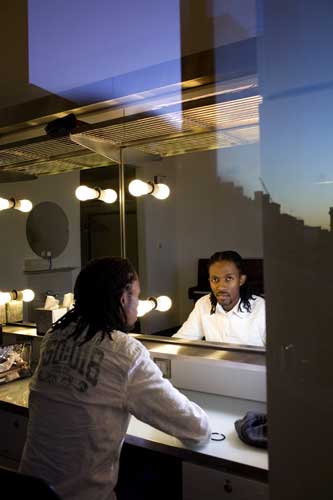The opera singer: Vuyani Mlinde

When Vuyani Mlinde is on stage, you don't take your eyes off him: the timbre of voice and vividness of performance demand attention. Now recognised as a rising star among bass-baritones, this unassuming 28-year-old South African is making his mark with all the big baritone roles, from Leporello and the Commendatore in Don Giovanni to the philosopher Colline in La Bohème.
His beginnings in Bloemfontein were musically inauspicious. "When I was 12, the teacher in charge of the choir made us all stand up," he recalls. "And when she came to me, she suddenly said, 'You are in my choir, come at 2.30 this afternoon'. I was surprised, because football was what interested me, but for some reason she knew I would be a bass." He turned up, sang hymns and traditional songs "and when my voice broke at 15 I knew I already had a nice instrument, though I didn't know how to use it, and it never occurred to me that I could make a career from it".
An astute voice-coach offered him free lessons, after which he sang the evil Sparafucile in Rigoletto, went on a tour of Australia, landed a scholarship at London's Royal College of Music, and the rest is history.
He's still passionately involved with his roots: he's just come back from Pretoria, where his community choir had invited him to join them as soloist for a new Zulu Mass. And he agrees that African voices are special: "They have a lot of strength. The musical talent in South Africa is huge, but most of the time people don't know they have talent – as I didn't. They can bring something different to European music." As he is doing. "I just wish that what I am doing here could be seen in my country."
Hopefully one day it will.
Join our commenting forum
Join thought-provoking conversations, follow other Independent readers and see their replies
Comments
Bookmark popover
Removed from bookmarks